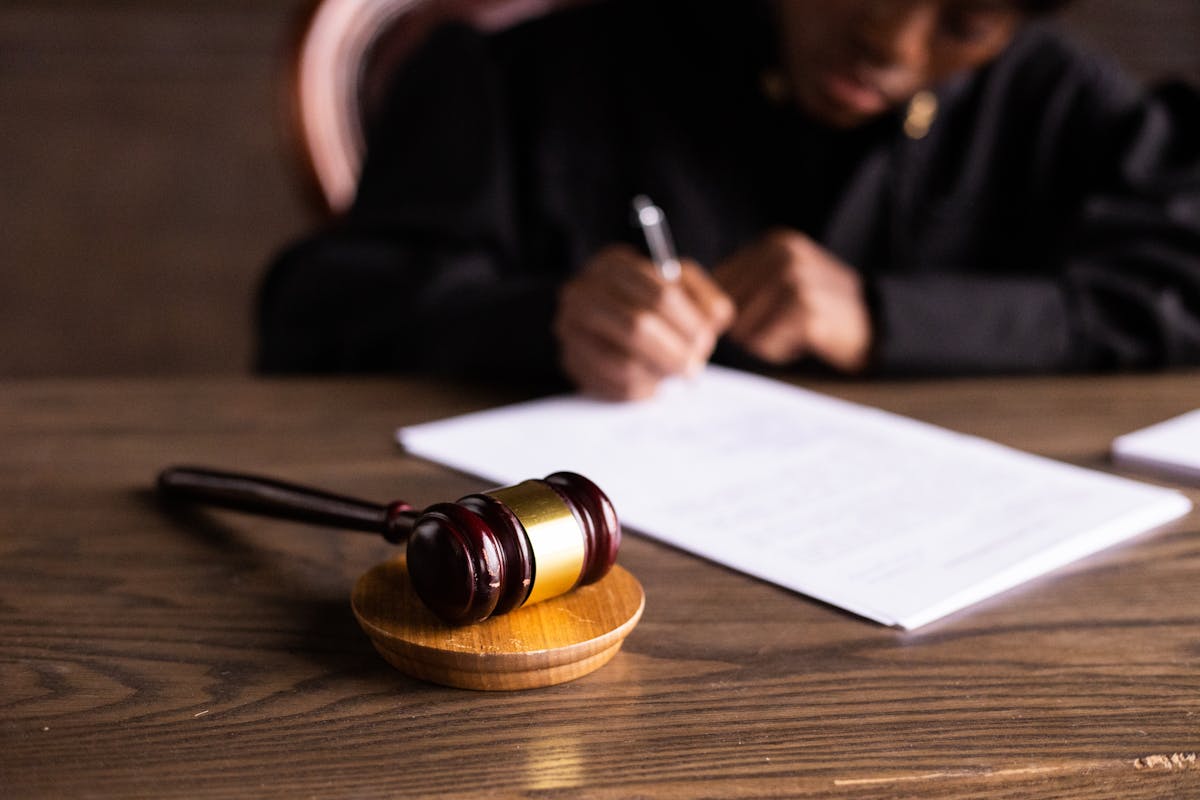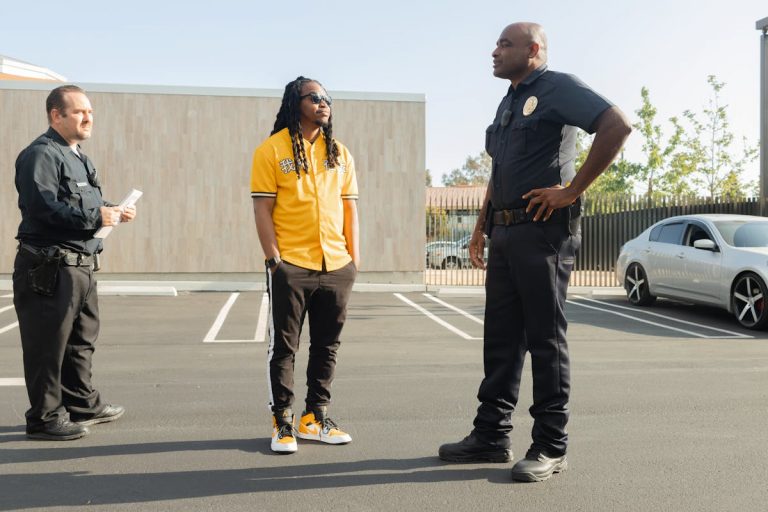The intricate process of criminal justice in Arizona, from arrest to potential appeal, presents a myriad of complexities that can greatly impact the outcome of a case. The system’s various stages, including pretrial procedures, plea bargaining, trial, sentencing, and appeals, each carry their own unique implications. A detailed understanding of these stages can provide essential insight into how Arizona’s criminal justice system operates. This discussion will further illuminate these processes, their potential impacts, and the significant role they play in our system of justice.
Understanding the Arrest Process
Although it may seem intimidating, understanding the arrest process in Arizona is an essential part of comprehending the overall criminal process. Arrests can occur either with or without an arrest warrant, depending on the circumstances. An arrest warrant is a court-ordered document that authorizes law enforcement to apprehend a person suspected of a crime. In situations where a crime is committed in an officer’s presence, an arrest may be made without a warrant. Following the arrest, booking procedures commence, which involves documenting the suspect’s information, cataloging personal belongings, and conducting a background check. Understanding these procedures provides a clearer picture of the initial stages of the criminal process in Arizona.
Pretrial Release Considerations
As we continue our examination of the criminal process in Arizona, we now turn to pretrial release considerations, a critical juncture in the judicial procedure. Primarily, we will focus on how bail amounts are determined and what conditions may be imposed upon the defendant’s release. These elements play a significant role in the defendant’s path through the legal system, impacting both their immediate freedom and the course of their pending trial.
Determining Bail Amounts
Within the framework of the Arizona criminal process, determining bail amounts plays a pivotal role in pretrial release considerations. This procedure is governed by bail determination factors and bail hearing procedures. The judge considers multiple factors when setting bail, including the defendant’s criminal history, current charges, risk of flight, and potential danger to the community. The bail hearing is a critical juncture where the prosecution and defense present their arguments regarding these factors. Arizona law mandates that the bail amount should not be excessive and must be proportionate to the nature of the alleged offense. It’s the court’s responsibility to balance the defendant’s right to reasonable bail with the need to guarantee public safety and court appearance.
Conditions for Release
Given the bail amount and the nature of the charges, a defendant in Arizona may be released from custody while awaiting trial under certain conditions. The court considers factors like the severity of the crime, the defendant’s criminal history, and the risk of flight when determining bail eligibility. Conditions for release may include periodic reporting to a pretrial services agency, abstaining from alcohol or drugs, and avoiding any contact with the victim. In some cases, the court may also require electronic monitoring. The goal is to guarantee the defendant’s return to court and the safety of the community. It is vital for defendants to understand these release conditions, as failure to comply can result in revocation of bail and immediate detention.
Preliminary Hearings Explained
What happens during a preliminary hearing in Arizona’s criminal process? The preliminary process is a critical stage where the judge determines if there is enough evidence to warrant a trial. It’s not a trial itself, but a review of the prosecution’s case. The defense has the opportunity to cross-examine prosecution witnesses, present their own evidence, and argue that the charges should be dropped. The judge, after hearing both sides, makes a decision. The hearing outcomes could range from the case being dismissed due to insufficient evidence, to the defendant being held for trial on some or all of the charges. Understanding the preliminary hearing process and potential outcomes can greatly impact the defendant’s strategy moving forward.

The Role of the Grand Jury
Shifting gears to the next key player in Arizona’s criminal process, we explore the role of the grand jury. This body possesses a unique function in the criminal justice system, acting as a preliminary check on the government’s power to prosecute. The grand jury’s main function is to review evidence presented by the prosecutor and decide if there is enough to return an indictment. This indictment process involves determining whether probable cause exists to charge someone with a felony. The grand jury doesn’t decide guilt or innocence but only if a trial is warranted. The proceedings are secret, ensuring unbiased deliberation and protecting the defendant’s reputation if no indictment is issued. This protective role underscores the grand jury’s essential function in Arizona’s criminal process.
Navigating Plea Agreements
While the grand jury plays an essential role in the preliminary stages of the criminal process, plea agreements often come into play once a case has reached the courtroom. Plea negotiation strategies are valuable tools utilized by defense attorneys and prosecutors to arrive at these agreements, which can drastically alter the course of a case. The benefits of plea deals are numerous, including the potential for reduced sentences, lessened charges, and the avoidance of a public trial. However, the decision to accept a plea deal should not be made lightly. It requires a thorough understanding of the case’s facts, the potential penalties, and the defendant’s rights. Maneuvering plea agreements is a complex process that underscores the significance of having skilled legal representation.
Trial Procedures in Arizona
The next phase of our exploration into Arizona’s criminal process focuses on trial procedures. We will first examine the standards for courtroom decorum in Arizona, which set the tone for the judicial process. Following this, we will elucidate the distinct phases of a trial in Arizona, providing clarity on this essential part of the criminal justice system.
Arizona Courtroom Etiquette
An overwhelming majority of individuals may not be aware of the unique courtroom etiquette in Arizona or the trial procedures that are distinctly followed in this state. Upholding courtroom decorum is essential to maintaining the respect and seriousness of the judicial process. This includes dressing appropriately, speaking only when addressed by the judge, and refraining from any disruptive or disrespectful behavior. Additionally, all electronic devices should be turned off to avoid interruptions during proceedings. Punctuality is also highly regarded, with late arrivals possibly resulting in penalties or dismissal of the case. Mutual respect between all parties, including defendants, attorneys, and court officials, is expected and required. Understanding and adhering to these guidelines guarantees a smoother and more efficient trial process in Arizona.
Understanding Trial Phases
Having familiarized ourselves with the decorum and etiquette of Arizona’s courts, it becomes equally important to grasp the trial procedures followed in the state, specifically the various trial phases. The trial process begins with jury selection, a meticulous process where attorneys select impartial individuals who can objectively evaluate the evidence presented. This is a vital part of trial strategies as the jury’s perception can influence the trial’s outcome. Once the jury is selected, the trial proceeds with opening statements, witness testimonies, and closing arguments. Each phase is integral, requiring careful navigation by both defense and prosecution. Understanding these phases can provide insight into the complexities and strategies employed in Arizona’s criminal process.
Sentencing and Punishment
While the criminal process may seem complicated, the stage of sentencing and punishment is when the court’s judgement comes to fruition. In Arizona, the court takes into account the severity of the crime, the defendant’s past criminal history, and the specific circumstances surrounding the case. Mandatory minimums play a significant role in this phase, setting the lowest possible sentence that a judge can give for a particular crime. However, if it’s deemed appropriate, the court might consider alternative sentencing. This could include probation, community service, or treatment programs, and is often used as a way to rehabilitate rather than purely punish. It’s essential to understand that the sentencing and punishment phase is a culmination of legal procedures, reflecting the justice system’s final verdict.
The Appeals Process
Despite the finality that a court’s verdict might suggest, the criminal process in Arizona provides an avenue for defendants to contest the decision through the appeals process. A critical aspect of this process is the defendant’s appeal rights, which allows for legal decisions to be reviewed by higher courts. Specifically, appellate courts examine the proceedings of the lower court to identify any legal errors that may have affected the verdict. This review process is not intended to re-evaluate the factual aspects of the case, but rather the application of law. If errors are identified, the appellate courts can overturn the verdict or order a new trial. Consequently, the appeals process serves as a critical check and balance within Arizona’s criminal justice system.
Frequently Asked Questions
What Are the Rights of a Defendant During Police Interrogation in Arizona?
In Arizona, during police interrogation, a defendant is protected by Miranda Rights, which include the right to remain silent and the right to an attorney. Authorities must respect these rights while employing any interrogation techniques.
Can a Criminal Record in Arizona Be Expunged or Sealed?
In Arizona, expungement is not available, but record sealing is possible under certain conditions. This is a legal process that requires specific eligibility and involves court procedures to effectively seal a criminal record.
What Is a Public Defenders Role in the Criminal Process in Arizona?
In Arizona, a public defender’s responsibilities encompass providing legal representation duties to indigent defendants. They safeguard constitutional rights, present defense strategies, negotiate plea deals, and represent the defendant during trial proceedings.
How Does the Bail Process Work in Arizona?
In Arizona, the bail process commences post-arrest. Judges set bail amounts during initial appearances, considering factors like flight risk and severity of the alleged crime. Bail hearings determine the final bail amount.
What Are the Possible Defenses in a Criminal Case in Arizona?
In Arizona, potential defenses in a criminal case may involve self-defense claims, alibi evidence, or disputing the validity of evidence. Each defense strategy is unique, tailored to the specifics of the charges and evidence.





